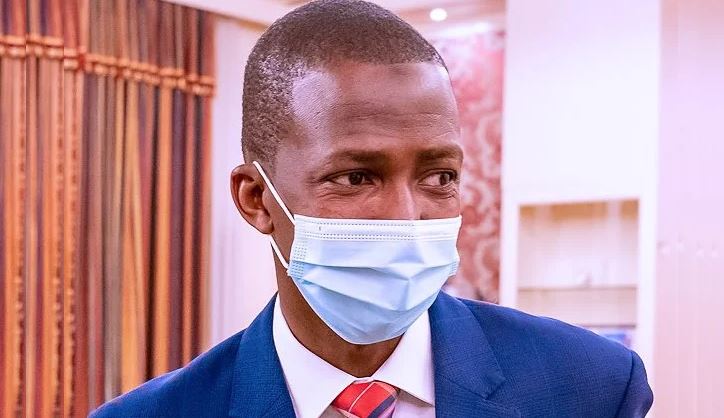EFCC Chairman, Bawa Testifies In Court In N1.4billion Fraud Trial
Posted by Samuel on Mon 24th Jan, 2022 - tori.ng
Abdulrasheed Bawa, the Executive Chairman of the Economic and Financial Crimes Commission, has arrived at the Lagos State High Court sitting in Ikeja for further cross-examination in the alleged N1.4billion fuel subsidy fraud trial of Mr. Abubakar Ali Peters and his company, Nadabo Energy Limited.
According to PM News, the case is before Justice C.A. Balogun.
Abubakar and his company are being prosecuted by the EFCC for allegedly using forged documents to obtain N1,464,961,978.24 from the Federal Government as oil subsidy, after allegedly inflating the quantity of Premium Motor Spirit, PMS purportedly imported and supplied by the company.
They pleaded “not guilty” to the charges preferred against them.
The prosecution counsel, Seidu Atteh, had at the sitting on March 10, 2021, sought to tender correspondences between the EFCC and Petrocam Trading PYT Limited as well as the Corporate Affairs Commission (CAC) in relation to the alleged fraud.
He had sought to tender them through the EFCC Chairman, Bawa, who is the fifth prosecution witness and the lead investigator.
The defence team, led by Osagie Isiramen, had, however, raised objections to the admissibility of the documents, citing several authorities, including Section 83 of the Evidence Act.
He had argued that the documents sought to be tendered were being brought to the knowledge of the defence, during the pendency of the trial, several years after the case had already commenced.
In November 2021, Justice Balogun dismissed the objections raised by the defence as lacking in merit.
With regard to the correspondence between the EFCC and Petrocam, Justice Balogun held that “The documents sought to be tendered were already in existence before this case was filed.
“Petrocam only gave documents of what already took place to the EFCC; and so, there is no surprise for the defence.”
On the objections raised to the admissibility of the correspondence between the EFCC and the CAC, the Judge reminded the defence of its ruling on February 2, 2021, on a similar argument still being canvassed and said, “The Court is still bound by its ruling in relation to certifying officers and payment for certification and shall abide by its earlier ruling. And so, in the circumstance, the objection is overruled.”

















































